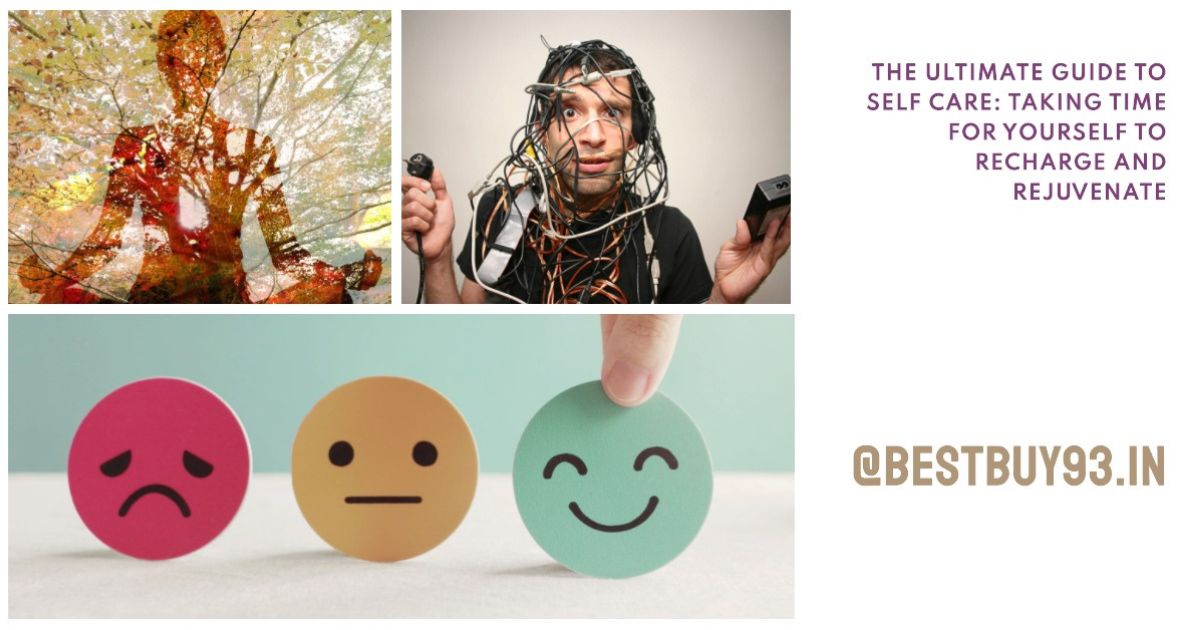The Ultimate Guide to Self Care – Life can get hectic, and it’s easy to get caught up in the hustle and bustle of daily routines, deadlines, and commitments. It’s crucial to take a break and prioritize your mental and physical health. This is where self-care comes in. Self-care is all about taking time for yourself to recharge and rejuvenate. It’s about prioritizing your needs and putting yourself first, even if it’s just for a few minutes a day. In this ultimate guide to self-care, we’ll explore what self-care is, why it’s essential, and practical tips and tricks to incorporate self-care into your daily routine. The Ultimate Guide to Self Care
The Ultimate Guide to Self Care
Self Care: What It Means and Why It’s Important
Self-care is the act of taking care of yourself, both physically and mentally. It involves practices and habits that promote well-being, reduce stress, and improve overall health. Self-care is essential for maintaining a healthy work-life balance, reducing burnout, and preventing mental health issues such as anxiety and depression. By prioritizing self-care, you’re ensuring that you have the energy and resilience to tackle life’s challenges. The Ultimate Guide to Self Care
The Benefits of Self Care
Self-care offers numerous benefits that improve both physical and mental health. Here are some benefits of self-care: The Ultimate Guide to Self Care
- Reduces stress and anxiety
- Boosts mood and improves overall well-being
- Increases productivity and concentration
- Enhances self-esteem and confidence
- Improves physical health and reduces the risk of chronic illnesses
The Consequences of Neglecting Self Care
Neglecting self-care can have severe consequences on both physical and mental health. Here are some consequences of neglecting self-care: The Ultimate Guide to Self Care
- Burnout and exhaustion
- Increased stress and anxiety
- Decreased productivity and concentration
- Poor physical health and increased risk of chronic illnesses
- Low self-esteem and confidence
Tips and Tricks for Incorporating Self Care Into Your Daily Routine
Self-care doesn’t have to be time-consuming or expensive. It’s about prioritizing your needs and finding what works for you. Here are some practical tips and tricks for incorporating self-care into your daily routine: The Ultimate Guide to Self Care
1. Prioritize Sleep
Getting enough sleep is crucial for overall health and well-being. Lack of sleep can lead to increased stress, decreased productivity, and poor physical health. Try to aim for 7-8 hours of sleep every night and establish a regular sleep schedule.
2. Engage in Physical Activity
Exercise is not only good for physical health, but it also improves mental health by reducing stress and anxiety. Find an activity that you enjoy, whether it’s yoga, running, or dancing, and make it a part of your daily routine.
3. Practice Mindfulness and Meditation
Mindfulness and meditation are powerful tools for reducing stress and anxiety. Take a few minutes every day to practice mindfulness or meditation. You can use apps such as Headspace or Calm to guide you through the process.
4. Connect with Nature
Spending time in nature can have a calming effect on the mind and body. Go for a walk in the park, sit by a lake, or take a hike in the mountains. Spending time in nature can reduce stress and improve overall well-being.
5. Treat Yourself
Treating yourself to something you enjoy can boost your mood and improve overall well-being. Whether it’s a spa day, a new book, or a favorite meal, taking time for yourself can reduce stress.
6. Set Boundaries
Setting boundaries is an essential part of self-care. Learn to say no to commitments that don’t align with your values or add unnecessary stress to your life. It’s okay to prioritize your needs and put yourself first.
7. Practice Gratitude
Practicing gratitude can improve mental health and overall well-being. Take time every day to reflect on the things you’re grateful for, whether it’s a good cup of coffee, a supportive friend, or a beautiful sunset.
8. Unplug from Technology
Technology can be a significant source of stress and anxiety. Take time to unplug from technology, whether it’s turning off your phone for an hour or taking a break from social media. It can help reduce stress and improve mental health. The Ultimate Guide to Self Care
9. Connect with Loved Ones
Spending time with loved ones can improve mental health and overall well-being. Make time for friends and family, whether it’s going out for dinner or having a game night at home. The Ultimate Guide to Self Care
10. Do Something Creative
Engaging in creative activities such as painting, writing, or playing music can reduce stress and improve mental health. Find an activity that you enjoy and make it a part of your self-care routine. The Ultimate Guide to Self Care
FAQs about Self Care
Q1. What are some self-care practices that can be done at home?
A1. There are many self-care practices that can be done at home, such as taking a relaxing bath, reading a book, doing a yoga or meditation session, or practicing a new hobby.
Q2. How often should I practice self-care?
A2. It’s essential to make self-care a part of your daily routine. Even if it’s just a few minutes a day, taking time for yourself can have significant benefits on your mental and physical health.
Q3. Can self-care practices help with anxiety and depression?
A3. Yes, self-care practices can help with anxiety and depression. Practices such as meditation, exercise, and mindfulness can reduce stress and improve overall well-being. The Ultimate Guide to Self Care
Q4. Is it selfish to prioritize self-care?
A4. No, it’s not selfish to prioritize self-care. Taking care of yourself is essential for maintaining a healthy work-life balance and preventing burnout. The Ultimate Guide to Self Care
Q5. What are some low-cost self-care practices?
A5. There are many low-cost self-care practices such as going for a walk, taking a nap, practicing gratitude, or spending time with loved ones. The Ultimate Guide to Self Care
Q6. How can I incorporate self-care into a busy schedule?
A6. It’s essential to prioritize self-care even in a busy schedule. Find a few minutes every day to practice self-care, whether it’s taking a short walk or practicing mindfulness during a break. The Ultimate Guide to Self Care
Conclusion
Self-care is essential for overall well-being and helps manage stress and anxiety. It’s about taking time for yourself to recharge and rejuvenate, and it doesn’t have to be time-consuming or expensive. By prioritizing self-care, you’re ensuring that you have the energy and resilience to tackle life’s challenges. Incorporate self-care into your daily routine by prioritizing sleep, engaging in physical activity, practicing mindfulness and meditation, connecting with nature, setting boundaries, practicing gratitude, unplugging from technology, connecting with loved ones, and doing something creative. Remember, taking care of yourself is not selfish; it’s necessary for a healthy work-life balance and overall well-being.
affiliate marketing affiliate marketing journey Amazon Amazon India AmazonIndia Beauty Bedroom Decor BestBuy93 BestBuy93.IN blender cozy home decor DIY electric kettle elegance Fashion Furniture hair care healthy lifestyle Home Appliances Home Decor homedecor home decor inspiration Home Improvement home styling tips hydration Interior Design interior design tips Kitchen Appliances kitchen essentials living room decor mindfulness minimalist interiors organization Productivity SelfCare Skincare Skincare routine storage solutions style stylish home decor tech gadgets technology tech review travel accessories wellness


























[…] […]